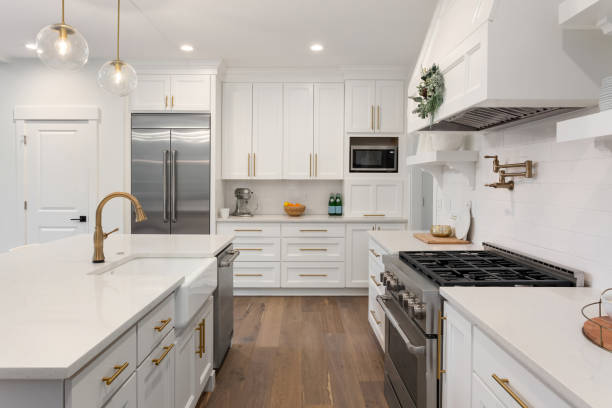In the world of kitchen pull out basket wholesale, profit and risk are inseparably linked. A successful wholesale operation can yield significant profits for distributors; however, a single miscalculation can lead to excess inventory, customer complaints, and even cash flow problems. This article examines five critical risk control points throughout the wholesale process, helping you navigate industry pitfalls and achieve stable profitability.
Supplier Screening – Success Starts at the Source
Common Pitfalls
- Falsified Credentials: Unregulated workshops fabricate certifications (e.g., ISO licenses), leading to partnerships with unqualified suppliers. → Risk: Substandard products (e.g., weak hinges)
- Material Substitution: Low-cost materials (e.g., thin-gauge steel replacing food-grade stainless steel) compromise durability, damaging brand reputation.
- Opaque Production: Concealed workflows (e.g., skipped quality checks) cause hidden defects → Example: Untreated baskets rust rapidly in humid kitchens.
Avoidance Strategies
- Conduct on-site audits: Inspect facilities, equipment, and raw materials; photograph key processes for verification.
- Demand third-party reports: Require SGS test data for material composition validation.
- Secure binding contracts: Include penalty clauses for delays and explicit warranty terms to transfer liability.
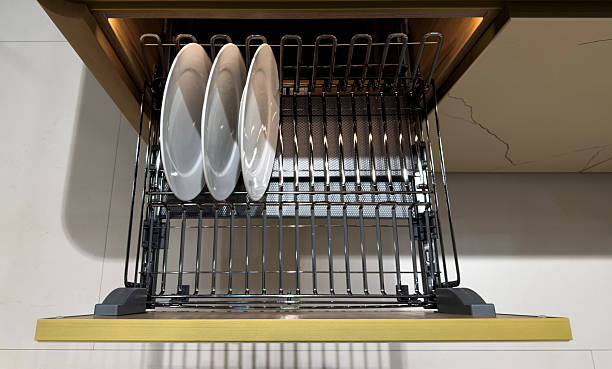
Factory Quality Control – Guarding the First Quality Gate
Common Pitfalls
- Cutting Corners: Using thinner stainless steel, low-quality slide rails, or plastic components.
- Process Flaws: Inadequate welding, inconsistent surface finishing (brushing/sandblasting), or untreated burrs.
- Material Substitution: Using 201 stainless steel instead of 304 (Key distinction: 304 is typically non-magnetic/weakly magnetic).
Avoidance Strategies
- Define Clear Acceptance Standards (QCDS): Specify material specifications (e.g., 304 stainless steel, 0.8mm thick), process requirements (e.g., smooth, solid weld points), functional standards (e.g., slide rail load testing), and appearance standards (e.g., no scratches, dents) in the contract/order. Provide signed, photo-documented approval samples.
- First Article Inspection (FAI): Strictly inspect the first piece against the signed sample/standards before mass production. Proceed only upon approval.
- In-Process Inspection (DPI / IPQC): Conduct periodic/random checks during production to monitor critical process stability.
- Outgoing Quality Control (OQC): Engage a professional third-party inspection agency or use your own QC team for full-batch inspection before shipment. Provide a detailed report.
Contract Signing – The Written Word is Binding
Common Pitfalls
- Vague Clauses: Ambiguous terms for materials, specifications, acceptance criteria, or liability.
- Payment Traps: High down payments with strict/unclear final payment conditions.
- Unenforceable Verbal Promises: Unwritten factory commitments (e.g., discounts, special requirements).
Avoidance Strategies
- Detail is Paramount: The contract must explicitly state all product details (materials, model, dimensions, color, finish), quantity, unit price, total price, delivery date, delivery location, acceptance standards & method, payment terms (ratios and timelines), defect liability period, breach of contract liabilities (especially for delays and quality issues – include compensation details), intellectual property ownership, etc.
- Control Down Payments: For first-time cooperation, suggest a down payment not exceeding 30%. Ensure the final payment is at least 30% and payable after passing inspection. Consider safer methods like Letters of Credit (L/C) or third-party escrow.
- “The Contract Governs”: Ensure all negotiated agreements are formalized in the written contract and stamped/sealed by both parties. Be wary of claims like “industry standard” or “understood.”
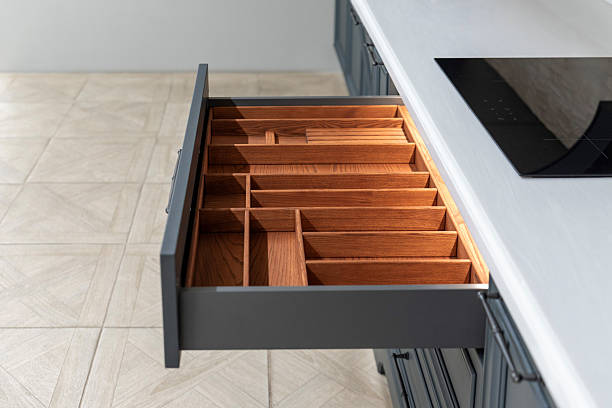
Production & Delivery Monitoring – Transparency Ensures Timeliness
Common Pitfalls
- Schedule Slippage: Factory not adhering to the plan, hiding true progress.
- Unauthorized Changes: Substituting materials or altering processes without consent.
- Endless Delays: Using excuses (raw material price hikes, power outages, environmental inspections) to postpone delivery indefinitely.
Avoidance Strategies
- Monitor Key Milestones: Require a detailed production schedule. Proactively request updates, photos, or videos at critical stages (cutting, welding, surface treatment, assembly, packaging).
- Regular Inspections / On-site Supervision: For large orders or key customer orders, arrange personnel for periodic factory visits or full-time on-site supervision to monitor production and quality in real-time.
- Establish Communication Protocol: Set up efficient communication channels (e.g., dedicated WeChat group) with a designated factory contact, mandating regular progress reports and issue notifications.
- Document All Changes: Any deviation from the original order must be formally confirmed in writing (email, contract addendum) by both parties, outlining responsibilities and any resulting cost/delivery implications.
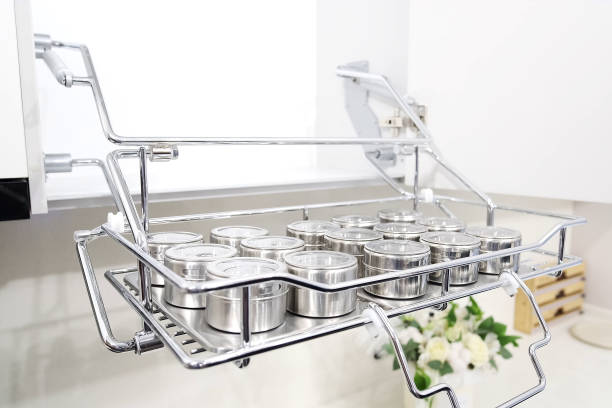
Logistics & Delivery – Securing the Last Mile
Common Pitfalls
- Rough Handling: Causing baskets to dent, scratch, or lose components.
- Damage Liability Disputes: Logistics company, factory, and receiver blaming each other for damages.
- Shipping Delays: Impacting customer receipt and sales plans.
- Wrong/Short Shipment: Receiving incorrect items or insufficient quantities.
Avoidance Strategies
- Enforce Robust Packaging: Specify packaging standards in the contract (e.g., carton + edge protectors + stretch wrap + wooden crate/case). Require photo confirmation before leaving the factory. Secure fragile parts (e.g., rails) individually.
- Purchase Cargo Insurance: Strongly recommend purchasing full-value cargo insurance to cover transit risks. Retain proof of insurance.
- Choose Reliable Carriers: Prioritize reputable logistics companies with experience in furniture/hardware transport. Agree on transit times and compensation terms upfront.
- Tracking & Receipt Protocol:
- Obtain the tracking number and monitor shipment progress.
- Inspect Upon Delivery: Open packages immediately upon receipt. Check outer packaging integrity, count quantities, and inspect product appearance/key parts for damage. Document any issues (damage, shortage, major defects) instantly with photos/video. Have the delivery driver sign a Damage Report acknowledging the issue. Notify the supplier and logistics company immediately to initiate claims.
- If full inspection isn’t possible on the spot, note “External packaging intact, contents unchecked” on the delivery receipt.
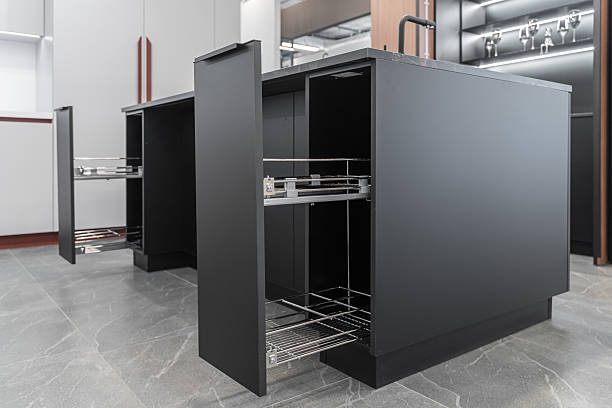
Case Study
Wholesaler Mr. Wang was lured by a “factory’s” low price for 304 stainless steel pull-out baskets. He paid a 50% deposit based solely on samples and verbal promises, with no material thickness or acceptance standards specified in the contract. Upon arrival, the goods featured paper-thin metal and jammed slides – actually made from inferior 201 stainless steel. The factory evaded responsibility, citing “samples for reference only” and the “contract’s lack of specific thickness.” Mr. Wang faced immense difficulty seeking recourse, nearly losing his entire six-figure RMB investment.
Conclusion
Pull-out basket wholesale is far more complex than simply “find factory – place order – receive goods.” Each step harbors potential risks. From thorough supplier vetting and stringent factory QC to watertight contracts, transparent production monitoring, and meticulous logistics planning, these five risk control points form the essential “firewall” for stable wholesale operations. Embedding risk awareness into every purchasing decision, replacing impulse with professionalism and diligence, is key to navigating a competitive market successfully, turning potential “pits” into opportunities to “win.”



